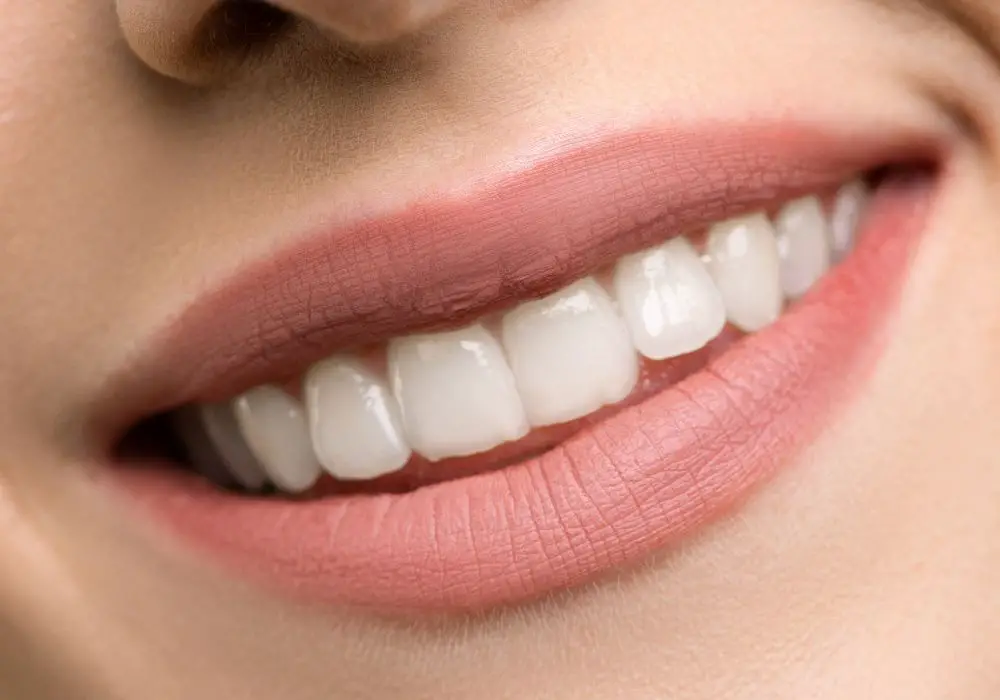Do you ever wonder what your teeth are made of? Teeth are an essential part of the human body, and they play a crucial role in our daily lives. Teeth are not just bones; they are actually ectodermal organs that are composed of multiple layers of both hard and soft tissue.
The three main layers of the tooth are enamel, dentin, and pulp. Enamel is the outermost and hardest layer of the tooth, protecting it from wear and tear. Dentin is the second layer, and it is a hard tissue that contains microscopic tubes. The pulp is the innermost layer, and it is the softest portion of the tooth, containing nerves and blood vessels. Each of these layers plays an important role in the structure and function of the tooth.
Understanding what teeth are made of is crucial for maintaining good oral health. By knowing the layers of the tooth, you can better understand how to take care of your teeth and prevent dental problems. In the following sections, we will dive deeper into the composition of teeth and explore each layer in more detail.
Basic Composition of Teeth
Your teeth are complex structures that are composed of different layers. Each layer has a specific function that helps your teeth perform their important role in your body. In this section, we will explore the basic composition of teeth, including the enamel, dentin, and pulp.
Enamel
Enamel is the outermost layer of your teeth and is the hardest substance in your body. It is primarily composed of inorganic substances such as calcium and phosphate ions, which give it its strength. Enamel also contains a small amount of organic material and water.
Enamel is translucent and ranges in color from light yellow to grayish-white. It protects the underlying layers of your teeth from damage and decay caused by bacteria, acids, and other harmful substances.
Dentin
Dentin is the layer of your teeth that lies beneath the enamel. It is softer than enamel but harder than bone, and is primarily composed of tiny tubes called dentinal tubules. Dentin also contains inorganic substances such as calcium and phosphate, as well as organic material and water.
Dentin provides support for the enamel and helps to transmit sensory information to the pulp. When the enamel is damaged, heat or cold can enter the tooth through the dentinal tubules and cause sensitivity.
Pulp
The pulp is the innermost layer of your teeth and is composed of soft tissue that contains nerves, blood vessels, and connective tissue. It is responsible for nourishing and supporting the dentin, as well as transmitting sensory information to the brain.
The pulp can become inflamed or infected due to tooth decay or injury, which can cause pain and sensitivity. In some cases, a root canal procedure may be necessary to remove the damaged pulp and save the tooth.
In summary, your teeth are composed of three main layers: enamel, dentin, and pulp. Each layer has a specific function that helps your teeth perform their important role in your body.
Role of Calcium and Phosphorus
Your teeth are made up of different layers, and the outermost layer is called enamel. Enamel is the hardest substance in your body and is mostly made up of calcium and phosphorus. These minerals bond together to form ultra-strong crystallites, which give your enamel its strength and durability.
Calcium and phosphorus are essential minerals for strong teeth and bones. As much as 85 percent of your body’s phosphorus content lies in your teeth and bones. Calcium, on the other hand, is a major structural component of bones and teeth. When dietary calcium intakes are low, your body uses calcium from bones to maintain total calcium in the blood within a narrow range.
Calcium and phosphorus work together to build and maintain healthy teeth and bones. Without enough of these minerals, your teeth may become weak and brittle, and your bones may become thin and fragile. In addition to their structural role, calcium and phosphorus also play a role in cell signaling pathways, which are essential for many physiological functions.
To ensure that you are getting enough calcium and phosphorus in your diet, you can eat foods such as dairy products, leafy green vegetables, nuts, and seeds. You can also take supplements if you are not getting enough of these minerals from your diet. However, it’s important to talk to your doctor before taking any supplements, as they may interact with other medications you are taking or have side effects.
In summary, calcium and phosphorus are essential minerals for strong teeth and bones. They work together to build and maintain healthy enamel and bone tissue, and also play a role in cell signaling pathways. To ensure that you are getting enough of these minerals, you can eat a balanced diet and talk to your doctor about supplements if necessary.
Understanding Tooth Decay

Tooth decay is a common dental problem that affects people of all ages. It is caused by a combination of factors, including bacteria in your mouth, frequent snacking, sipping sugary drinks, and not cleaning your teeth well. Understanding the causes of tooth decay can help you take steps to prevent it.
Role of Bacteria
Bacteria are present in your mouth and play a vital role in the breakdown of food particles. However, when bacteria combine with food debris and saliva, they produce a sticky film called plaque. Plaque builds up on your teeth and can lead to tooth decay.
The bacteria in plaque produce acids that attack your tooth enamel, causing it to break down and form cavities. If left untreated, the decay can spread to the deeper layers of your tooth, causing pain, infection, and even tooth loss.
Impact of Diet
Your diet can also play a significant role in the development of tooth decay. Foods and drinks that are high in sugar and carbohydrates can increase the amount of acid in your mouth, leading to decay.
Frequent snacking and sipping sugary drinks throughout the day can also increase your risk of tooth decay. This is because the bacteria in your mouth have more time to produce acid when you eat or drink frequently.
To prevent tooth decay, it is essential to maintain good oral hygiene habits, including brushing and flossing regularly. You should also limit your intake of sugary and acidic foods and drinks and avoid snacking between meals.
In summary, tooth decay is a common dental problem caused by a combination of factors, including bacteria in your mouth and a diet high in sugar and carbohydrates. By understanding the role of bacteria and the impact of your diet, you can take steps to prevent tooth decay and maintain good oral health.
Maintenance of Teeth Health
Taking care of your teeth is essential to maintain good oral health. Here are some tips to help you keep your teeth healthy and strong.
Importance of Fluoride
Fluoride is a mineral that helps prevent tooth decay. It strengthens the enamel, the outer layer of your teeth, and makes it more resistant to acid attacks from bacteria. Fluoride can be found in many sources, such as:
- Fluoridated water
- Fluoride toothpaste
- Mouthwash
- Supplements (prescribed by a dentist or doctor)
To ensure you are getting enough fluoride, you should:
- Drink fluoridated water
- Brush your teeth with fluoride toothpaste twice a day
- Use a fluoride mouthwash daily (if recommended by your dentist)
- Ask your dentist if you need fluoride supplements
Role of Regular Brushing
Brushing your teeth regularly is one of the most important things you can do to maintain good oral health. It helps remove plaque, a sticky film of bacteria that can cause tooth decay and gum disease. Here are some tips for effective brushing:
- Brush your teeth twice a day for at least two minutes each time
- Use a soft-bristled toothbrush and fluoride toothpaste
- Brush all surfaces of your teeth, including the front, back, and chewing surfaces
- Use circular motions and gentle pressure
- Don’t forget to brush your tongue to remove bacteria and freshen your breath
In addition to regular brushing, you should also floss daily to remove food particles and plaque from between your teeth. You can also use an interdental brush or water flosser if you find it difficult to use traditional floss.
By following these tips, you can help maintain good oral health and keep your teeth strong and healthy.
Frequently Asked Questions

What are the organic and inorganic components of teeth?
Teeth are composed of both organic and inorganic components. The inorganic component is primarily hydroxyapatite, which is a mineral form of calcium phosphate. The organic component is mainly collagen, which is a type of protein.
What is the composition of dentin?
Dentin is a hard tissue that makes up the bulk of the tooth. It is composed of hydroxyapatite crystals, collagen fibers, and water. Dentin is softer than enamel but harder than bone.
What materials make up human teeth?
Human teeth are made up of four different types of tissue: enamel, dentin, cementum, and pulp. Enamel is the outermost layer and is the hardest substance in the body. Dentin is the bulk of the tooth and is covered by enamel on the crown and cementum on the root. Cementum covers the root and helps anchor the tooth to the jawbone. Pulp is the soft tissue inside the tooth that contains nerves and blood vessels.
What are the parts of a tooth and their functions?
A tooth has several parts, including the crown, root, enamel, dentin, pulp, and cementum. The crown is the visible part of the tooth above the gumline and is covered by enamel. The root is the part of the tooth below the gumline and is covered by cementum. Enamel is the hard, outer layer that protects the tooth from damage. Dentin is the bulk of the tooth and provides support. Pulp is the soft tissue inside the tooth that contains nerves and blood vessels. Cementum covers the root and helps anchor the tooth to the jawbone.
What are fake teeth made of?
Fake teeth, also known as dental prostheses, can be made from a variety of materials, including acrylic resin, porcelain, and metal. The type of material used depends on the specific needs of the patient.
What are shark teeth made of?
Shark teeth are made of a hard, mineralized tissue called dentin. Unlike human teeth, shark teeth are not covered by enamel.







